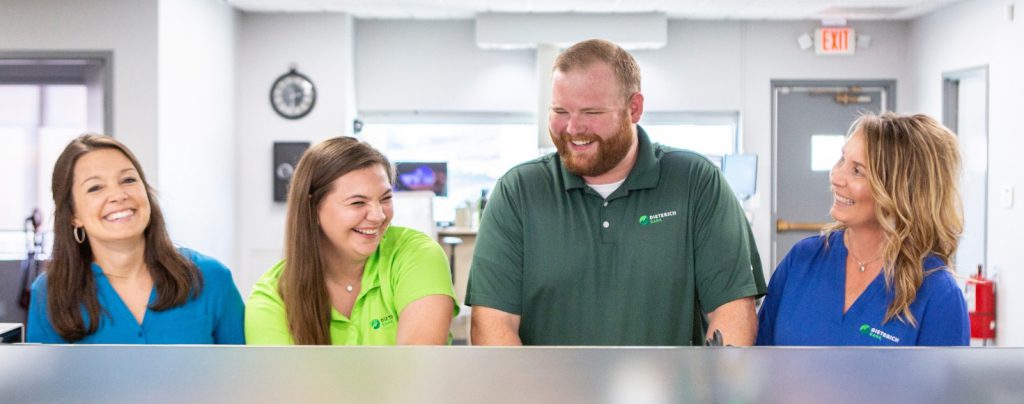keep your finances safe
Financial Security Tips
As your trusted financial partner, we want to keep you and your finances safe from fraudsters and scams. Please reference this page for common scams that we have seen affecting our customers. If you are unsure about a situation regarding your finances, please reach out to our Customer Care Department for assistance.

Dieterich Bank will never call you and request personal information such as:
Your social security number, your debit card information, or online banking credentials.
When in doubt, disconnect the phone call and contact us at a phone number that is listed on our website.
* If you call us, we will use this information to properly validate who we are speaking to, but we will never reach out to you and ask for it.
Commonly known scam and fraud attempts
Looking for more information about fraudulent attacks and scams we’re aware of? See below:
Pig Butchering
Have you heard of a scam called “Pig Butchering”? This has been a huge scam, growing each year. The scammer befriends victims online. After a while, they mention how they have made money investing in cryptocurrency. Then they offer to help you invest. They will start out small, send an account statement showing great returns. Then they encourage the victim to invest more and more, until the victim asks for some of the funds back. Then they disappear, with all the money. Search for “Pig butchering articles by ICBA” on the web for more information.
Romance Scam
One of the most common scams is the Romance Scam, named so because they involve some level of relationship and trust. While there are many variations of this scam, the basic principles are the same. The scammer will approach their target online, perhaps on a dating app but also by other online methods. Initially, they appear harmless, sharing stories of common interest. This will continue for months while the scammer builds trust with the victim. Typically, after 4 to 6 months, the scammer reveals some type of financial situation. They may need to move money, help a friend, or show the victim a sure-fire way to make money. They usually ask the victim for their online banking credentials so that they can mobile deposit a check or set up an interbank transfer. Funding they provide will be fraud. Or they will simply take the money of the victim. They will want the victim to move the money quickly before the fraud is discovered. Then the victim is left holding the bag, either having given away their own money or owing the bank for fraudulent funds they allowed to pass through their account.
These scammers work in groups for organized crime, or terrorists. They are professionals. The money stolen may be used for terrible crimes. Never give out your online banking credentials and never get involved in financial dealings with someone that approached you online.
Fake Communication from "Your Bank"
Scammers have many tricks up their sleeves, and they can make it seem like “your bank” is reaching out to you via email, phone call, text messages, social media messages, etc. They may try to offer a great deal (for just a small upfront fee) or ask you to confirm your bank info to report suspicious activity that you need to follow up on. To avoid this scam, don’t give out your sensitive information to somebody who calls you or disconnect the conversation and reach out to your bank from a phone number on their website.
Job Scams
Scammers will pretend they have a legitimate work from home job for you: In exchange for a commission, you’ll transfer funds in and out of your bank account, but the “employer” is using this opportunity to gain access to your bank account information. Never take a job that requires you to pay a fee or upfront cost, and if you’re being offered a simple job with a potentially huge financial reward, it’s probably too good to be true.

Have a quick question?
We’re always here to help. For questions concerning your banking needs, fill out this simple form, and we’ll be in touch soon!

